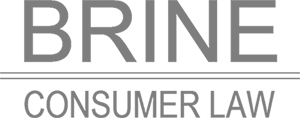If you are like many people, you received thousands of dollars in student loans while you were in college. The monthly payments can sometimes be as high as a person’s rent or mortgage payment. It can be very challenging to pay every month, especially if you are also facing other financial hardships. However, defaulting on a student loan—especially a federal student loan—can result in your facing serious financial consequences.
What Are the Consequences of Defaulting on a Student Loan?
You may become delinquent in your student loan payments for a number of reasons, such as unemployment, low pay, lack of raises, and other financial obligations. You are delinquent when you miss one payment, and this is different than being in default. Once you start paying a student loan late, it is often hard to bring the loan current.
When a loan is considered in default will be determined by the type of loan you have and the terms of the loan agreement. Some federal student loans are generally not considered in default until the debtor has missed nine payments. However, a private student loan and some federal loans can be considered in default after you miss just one payment.
Some of the consequences of default on a student loan can be severe, such as:
- Accelerating the loan. Once you are in default of your student loan, the lender can accelerate the loan, which means the entire amount of the loan is now due. You could also owe additional amounts due to interest, late fees, and other expenses being added to the loan balance.
- Reporting to major credit reporting agencies. When your student loan is approximately 90 days past due, the lender will report your delinquency to the three major credit reporting agencies—Equifax, Experian, and TransUnion. The credit reporting agencies will report your delinquency on your credit report, which may limit your ability to obtain any credit and result in higher interest rates from lenders.
- Sending your account to a collection agency. If the lender cannot get you to bring your loan current, it could refer your loan to a collection agency to attempt to collect the debt. Unfortunately, a collection agency may engage in threatening and abusive practices when attempting to collect a student loan.
- Garnishing your wages. If you default on a federal student loan, your wages can be garnished without a court order. The government or guaranty agency can garnish up to 15 percent of your disposable income.
- Taking your income tax refund and federal benefits. If you are in default of a federal student loan, your federal income tax refund and up to 15 percent of your Social Security retirement and disability benefits can be taken without a court order to apply to your loan.
- Suing you. Both the federal government and private lenders could sue you to obtain a judgment against you if you default in your student loan payments. Unlike other debts, there is no statute of limitations for suing you for student loans.
Let Brine Consumer Law Help You With Your Defaulted Student Loan
Unfortunately, you cannot discharge a student loan in bankruptcy. However, if you are in default of your student loan, you still have options to avoid the harsh consequences you could face. Let Brine Consumer Law help you explore all your options and help you to negotiate a payment plan, enter into an income-based repayment program or other federal program, or consolidate your loans with the federal government or your lender. To discuss your situation and legal options, call our office to schedule a free consultation.

